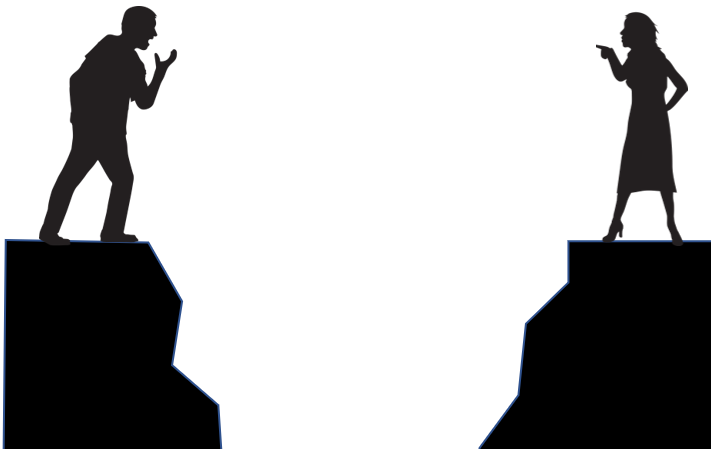As many of us know from the countless ads on TV, sound bites on the news, and articles on the internet, we live in a time of record wealth and income inequality.
Income Inequality
What is not commonly known is that the reality of income inequality is far worse than our perception of the problem. The bottom forty percent of Americans have a negative net worth, which means their debts outweigh their assets, and most of them do not have enough money for an emergency costing more than $500.
While we all recognize the gravity of wealth inequality and we all would like the United States to be a more wealth equitable place, most of us have adverse feelings to explicit wealth redistribution policy. That is a perfectly valid response in a society like ours that is built on self-reliance and personal responsibility.
It is my belief that the next president must pass comprehensive tax reform so that the rich pay their fair share. I would like to see all income, no matter the source, be taxed on a progressive scale, and see capital gains taxed exactly the same as earned income.
To me, income is income no matter the source. This would raise revenue for the federal government and help balance the budget.
People in the middle and working class typically do not derive their incomes from capital gains have a higher propensity to spend.
Of those in the upper class, they typically do derive the majority of their income from capital gains, pay a lower, flat tax rate, and have a higher propensity to save. Taxing capital gains as earned income would capture some of the “frozen” money, allowing it to be spent on public services that can stimulate the economy.
Healthcare
The country went through a contentious debate in 2010 over healthcare with the Patient Protection and Affordable Care Act, known colloquially as Obamacare. Obamacare’s intention was to make insurance available to more people for a lower price on open, competitive marketplaces, and expand Medicaid to cover the uninsured.
While Obamacare was largely successful in accomplishing its goals, it failed to control the behavior of healthcare companies. Ninety percent of all Americans now have some form of healthcare coverage, however, around 23% of Americans are underinsured.
This means that while they do have healthcare coverage, their out-of-pocket expenses are prohibitively larger than they can afford. The purpose of insurance is to catch you when anything bad happens; it is not supposed to bankrupt you. In fact, a significant number of medical bankruptcies happen to people who had health insurance but were effectively underinsured. While healthcare costs have reached their slowest growth rate in recent times, the cost is still at an all-time high and is becoming a problem for most Americans.
Healthcare in America costs so much partly because of high prescription drug prices and administrative overhead. The next president would be wise to propose a healthcare system where everyone is still required to have health insurance, but a government agency sets the prices for medical procedures.
This would cut the administrative costs and reduce the actual healthcare costs. Another alternative would be to go to a Medicare-for-All single-payer system where the government pays the cost of healthcare directly. This would crowd out private health insurers, cut down on administrative costs, and cover everyone in America.
The American government could also use its negotiating power to lower the price of branded prescription to what other countries pay. In addition, detaching healthcare from careers and providing to every tax-paying citizen allows for more people to leave their corporate jobs without losing benefits in pursuit of starting a small business.
This would actually promote entrepreneurship and encourage more economic growth. Obamacare was a decent step towards fixing the problems with American healthcare, but it does not go far enough, and the next president needs to propose a more comprehensive solution.
Progress
In the end, all of these things and all of this progress is dependent on people like you and me getting involved in the process, voting in the primaries for candidates we believe in, showing up in the general to actually elect those people, and keeping in touch with our elected representatives so they do not lose touch with their constituencies.
To me, the bare minimum civic duty you have as a citizen of the United States is to vote. Voting for an elected official’s opponent in a primary, or even being that opponent, are effective means of protesting. Only when we get involved can we guarantee that we are being properly represented.
The next president will need a robust grassroots movement by our generation to help sell his or her legislative agenda to Congress. We are the future of this country and I believe we must demand progress and we must strive to make life better for all Americans.




'The United States Still Has a Long Way to Go' has 1 comment
June 8, 2016 @ 1:54 pm C. Doke
I encourage you to be very careful and very specific when it comes to presenting data on item #1.
For example, the title of item #1 is “Income Inequality”, yet you cite a statistic that pertains to “net worth”. These are two quite different things. The former may show real structural disparity, the latter not so much. When Marilyn vos Savant, who has the highest I.Q. ever recorded was asked about increasing income inequality, she responded that it is the most natural thing in the world. An increasing gap between the wealthy and the poor is NOT, in and of itself, bad; it is an indication that society in general is getting wealthier. Those who are poor cannot get any poorer (their income is $0) and as the remainder of society becomes wealthier the gap increases.
First, the standard statistics are based on household income, not individual income. The number of people per household varies vastly over a myriad of things such as income (yes- notice it is recursive?), education, etc. Failure to understand this is the genesis of the “people are worse off now than 30-years ago” statement. This is a statistical manipulation. It is true that household income had fallen slightly over that time, but the number of people per household is significantly lower than it was then. Correcting for this, incomes have risen over that time, even accounting for inflation. Further to that, we have all heard that the middle class is shrinking. One of the largest issues is that there isn’t a standard definition of what constitutes the “middle class”. When you define the “middle class” as a static interval yes it appears to shrink, but only because the mode of the income distribution is moving right- i.e. people are getting wealthier on average.
In more general terms, be careful when looking at an income histogram. Often they are presented in a way that makes the income distribution appear as if it is bi-modal. That is, it looks to have two peaks; one large on at a lower end, and a large spike at the very top. One must pay attention to the x-axis, because this is completely the result of the way the data is binned. There is a very long tail to the right side of the distribution and in order to not display the very long tail, they amalgamate that data into one or two bins at the end. The income distribution is thoroughly log-normal. This is standard. Now, I know that most are familiar with the normal distribution (“Bell Curve”), but it is not a distribution that occurs in nature almost ever. Phenomena that are the result of the multiplication on inputs tend to be log-normally distributed, whereas those that result from addition only tend to be normally distributed. The latter never really occurs in nature in complex situations. This is particularly true in those situations where there is a hard constraint, as there is here. The minimum anyone can make is $0.
Second, the standard statistics do not follow households (or people) through time. There has been some work on this front (University of Michigan being one) and it showed that, in fact, there is massive mobility between income classes in the United States. In the 8-year study period over half of those who were in the bottom 20% (quintile) at the start of the study were in the top 20% of income earners at some point during study duration. This is important because often income percentages are spoken of as if they are entrenched classes. They simply are not. Additionally, wealth is less concentrated now than previously. For example, the two wealthiest Americans today control 1/8th the amount of assets that the two wealthiest Americans 100 years ago did. Time and progeny have a tendency to destroy dynastic wealth.
Third, these percentage income brackets are “abstract statistical categories”. Here is how abstract they really are: there are ~32 million people in the bottom 20%. There are ~64 million people in the top 20%. This discrepancy becomes even larger when you look at the number of income earners in each category; there are 6 times the number of income earning people in the top 20% than there are in the bottom 20%. Think about that for a second; there are 6 times the number of working people in the top quintile vs. the lowest quintile. This has a significant impact when the narrative is phrased in terms of, “X% bracket received this Y% of the benefit.”
So who are the poor and who are the rich? Certainly there are truly poor and truly rich people, but this statement speaks more to true wealth than to income itself. Here is the thing: transfer payments (such as social security checks or government assistance, or a pension) are not included in income in these statistics. Around 55-60% of those households in the lowest quintile have nobody in the household working period, not even part time. Who are these people really? Yes, the category includes the genuinely poor. It also includes the elderly who are living off their social security checks or pension (those are transfer payments). They could live in a $2 million dollar home and still be in the bottom quintile. There are ex-wives of multi-millionaires in this category. Who are the rich- let’s say the 1%? First, it takes very little to be in the 1%: ~$350,000. Interestingly most statistics on this subject do not attempt to remove capital gains from income. Here is the thing, most people in the 1% have taken a capital gain in that year, i.e. they sold their house. A household with two people each making $50,000 per year that sells their $250k house is a 1% household for that year. They are very unlikely to be in the 1% next year. It is that easy.
In fact, a lot of us will be in the top income brackets at some point. 40% of Americans will be in the top 5% at some point in their lives. 1 in 5 people will be in a household that is in the top 2% at some point in their lives. 1 in 8 will be in a household that is in the top 1% at some point. If you listened to the recent NPR coverage of a study with this type of analysis covered the same brackets, but cited statistics for households that remained in that bracket for two consecutive years. Their stats make perfect sense in light of the above citations as these are the case for “at some point”, meaning 1 year.
This happens to be a subject that is fraught with sloppy statistics, and I repeat that I encourage you to be quite careful with it. The truth is far more interesting than some sensationalized news story anyway.